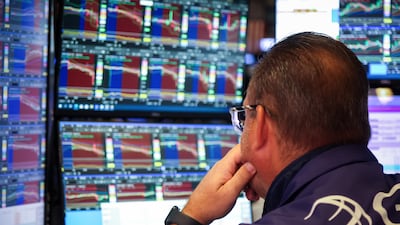Even the most steadfast investors have felt anxious or stressed this year. Sharp market swings, geopolitical tensions, continuing trade disputes and constant volatility have taken a toll. Maybe you’ve felt that sinking feeling when checking your portfolio after a rough day. Or spent sleepless nights debating whether to sell, buy more or stop checking altogether.
New research shows that stock market crashes can have real, measurable effects on mental health. A 2024 study titled Stock Market and the Psychological Health of Investors by Chang Liu and Maoyong Fan provided compelling evidence that investors’ psychological health significantly worsens when their portfolios decline, especially in prolonged market downturns.
The researchers analysed comprehensive medical records of millions of US investors and found that antidepressant prescriptions and psychotherapy sessions surged notably during periods when the stock market declined significantly.
For example, a one-standard-deviation drop in local stock market returns led to an average increase of around 0.42 per cent in antidepressant use. When markets crashed hardest, prescriptions spiked even more dramatically, revealing just how deeply connected our financial and emotional lives really are.
Notably, the effect was tied directly to individual financial losses, not just general economic uncertainty or negative headlines. Investors were directly affected mentally by declines in their own portfolios, even if their jobs, wages or the wider economy remained stable.
Why losses hit harder than gains
An important finding from this research is that investors are much more psychologically impacted by losses than gains. This reflects behavioural finance theories on loss aversion, the idea that we react more strongly to losses than to gains of the same size.
Simply put, losing €1,000 ($1,165) hurts a lot more than making €1,000 feels good.
Middle-aged and older investors (aged 45–64) experienced this effect most strongly. Since these age groups tend to have larger portfolios and frequently consider their investments to be necessary for retirement plans or other major life milestones, this makes sense.
A stock market meltdown feels more than just a setback for them, as it poses a threat to future goals, aspirations and security, which compounds its emotional impact.
The turbulent markets of 2025 that are dominated by trade wars between the US and the rest of the world, tariff escalations, geopolitical tensions and multiple episodes of significant volatility have left many investors experiencing precisely what this research captures.
Watch: Poor US jobs data spooks markets and torpedoes US exceptionalism
Headlines about “market meltdowns” or “trade war tensions” aren’t just news stories; for many, they represent very real threats to their mental well-being.
What can you do about it?
Awareness is the first and crucial step. Recognise and acknowledge how financial stress affects you emotionally. Here’s some practical, evidence-based advice that can help you manage the psychological toll:
- Avoid making large financial decisions when emotions run high. Our worst decisions often come from panic or anxiety, not rational thought.
- Stick to your long-term investment plan and diversify. If the volatility has been too much, it might indicate your portfolio isn't as diversified or balanced as you thought. Diversification is not just a means to protect your money, it’s the baseline of protecting your mental health, too.
- Seek expert insights and analysis if you’re unsure about your strategy or talk with a trusted friend or family member. Speaking openly about your anxiety often helps you feel more grounded and less isolated.
- Markets have historically always bounced back, even after steep falls. Patience and a long-term perspective help protect your well-being as well as your money.
If 2025 has taught investors anything, it’s that investing is more about resilience, emotional intelligence and well-being, apart from just returns.
As the saying goes, “your mental health is your real wealth”. By understanding this powerful connection, we become not just smarter investors, but healthier, happier people, too.
So, if you’ve felt the stress of this year's market volatility, know that it won’t last forever. Like markets, your emotional resilience will bounce back with time. Until then, diversify, talk it out and hang in there.
Jacob Falkencrone is global head of investment strategy at Saxo Bank


